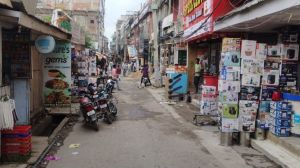Safe food,from farm to fork
New norms to bring in safety regulations at each link of the food chain
Pesticide overuse,irrigation by untreated sewage water,poor sanitation at food markets,and faulty cold storages. Punjab and Haryana,as major foodgrain,fruit,vegetable,poultry and milk producing states,are yet to eliminate food safety hazards.
Now,they will have to do all this and more under a new set of rules and regulations under the Food Safety and Standards Act,2006,to be notified soon by the Union Health Ministry.
The two states have begun to get their act together.
Food can be contaminated at any point,from farm to fork. The norms aim to secure each link of the food chain. Right from the fields of farmers,transport,storage,processing units,handling,wholesale markets to the final consumer,contamination can happen at any level,which are then transmitted to the next level of the food chain.
Since food is primarily handled through agricultural markets administered by marketing boards,the markets will also have to follow hygiene standards to ensure food safety, says S S Randhawa,Managing Director,National Council of State Marketing Boards (COSSAMB).
The Food Safety and Standards Authority of India (FSSAI),which was set up under the Food Safety and Standards Act,2006,says the implemenation of these rules and regulations will ensure a complete transition of the earlier Prevention of Food Adulteration (PFA) Act into Food Safety and Standards Act.
The FSSAI has notified the draft rules and regulations on February 19,2011. We then invited comments from all stakeholders,including consumers. Some of their suggestions have been incorporated. We have now sent the final draft to the Ministry of Health for its nod. It is likely to be notified by the ministry by May-end, an official of the Delhi-based FSSAI said.
The first part rules deal with enforcement of the Act by the states. It covers all aspects from qualification of food safety officers,sampling,abjudication,penalty to appeals. The second part,regulations,deal with measures for ensuring food safety. Most important of which is licensing.
For the first time,all big,medium and small food businesss will be covered under a single licencing system. While the big businesses will have to procure licence from the central body,medium ones will have to do so from states and small businesses such as hawkers and vendors from the respective panchayat or municiplality, the FSSAI said.
Photos



- 01
- 02
- 03
- 04
- 05




























